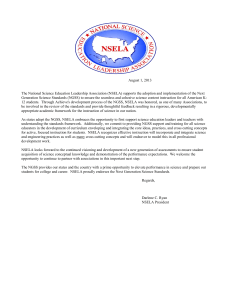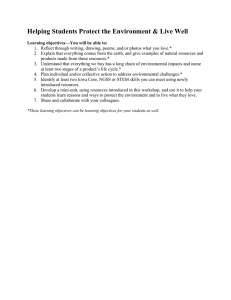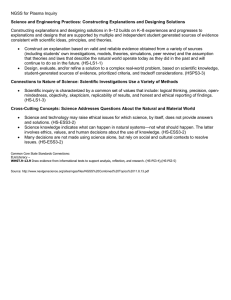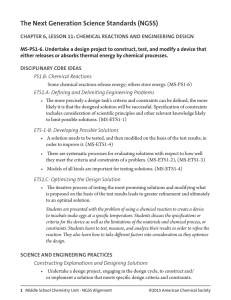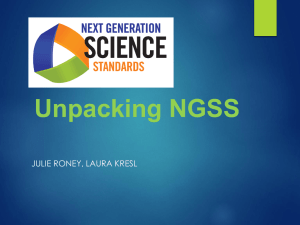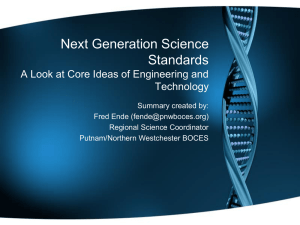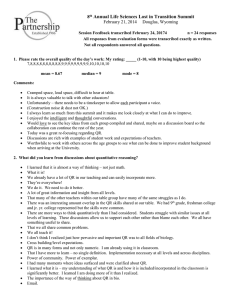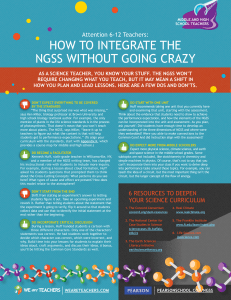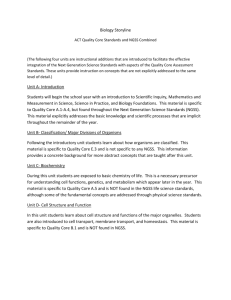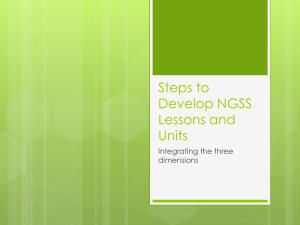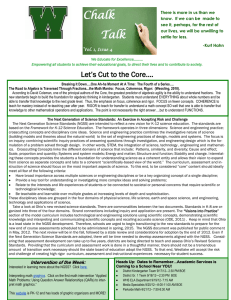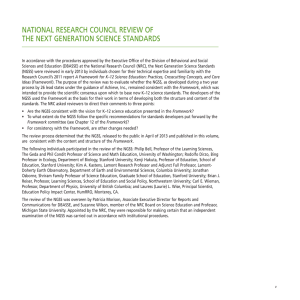Engaging Students with NGSS Engineering PowerPoint
advertisement
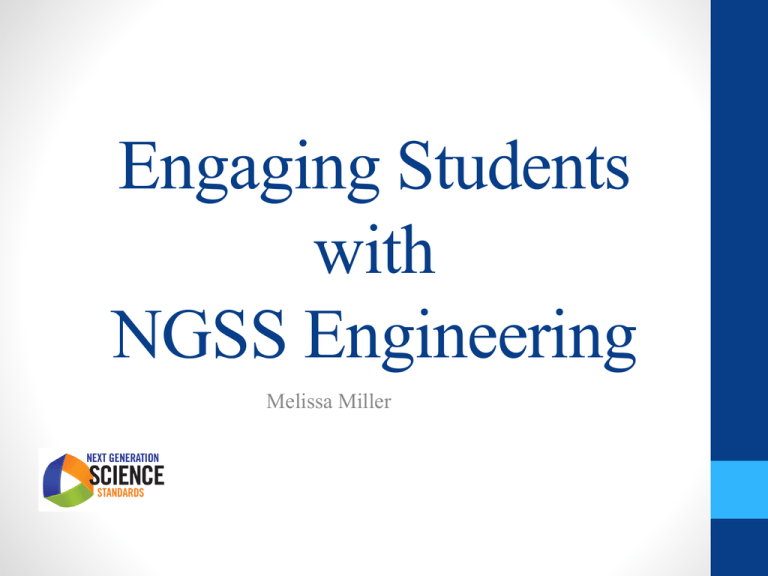
Engaging Students with NGSS Engineering Melissa Miller NGSS Definitions of Engineering and Technology: • Engineering – Any engagement in a systematic practice of design to achieve solutions to particular human problems. • Technology – All types of human-made systems and processes. Conceptual Shift in NGSS • Science and engineering are integrated in the NGSS, from K-12. This is achieved by raising engineering design to the same level as scientific inquiry when teaching science disciplines at all levels and by giving core ideas of engineering and technology the same status as those in other major science disciplines. WHY? We have the need to address major world challenges and to deepen students’ understanding of science by applying scientific knowledge to the solution of practical problems. “Scientists investigate that which already is; engineers create that which has never been.” Albert Einstein Engineering Design Model Component Ideas and Progress at Each Grade Span Grade Span Defining Problem Developing Solutions Optimizing Solutions K-2 Identify situations that people want to change as problems that can be solved through engineering. Convey possible solutions through visual or physical representations. Compare solutions, test them, and evaluate each. 3-5 Specify criteria and constraints that a possible solution to a simple problem must meet Research and explore multiple possible solutions. Improve a solution based on results of simple tests, including failure points. 6-8 Attend to precision of criteria and constraints and considerations likely to limit possible solutions Combine parts of different solutions to create new solutions Use systematic processes to iteratively test and refine a solution 9 - 12 Attend to a broad range of considerations in criteria and constraints for problems of social and global significance Break a major problem into smaller problems that can be solved separately Prioritize criteria, consider trade-offs, and assess social and environmental impacts as a complex solution is tested and refined. PEs that Incorporate Engineering Practices Physical Science Life Science Earth/Space Science Engineering K-ESS3-2 K-ESS3-3 K-2-ETS1-1 K-2-ETS1-2 K-2-ETS1-3 K K-PS2-2 K-PS3-2 1 1-PS4-4 1-LS1-1 2 2-PS1-2 2-LS2-2 2-ESS2-1 3 3-PS2-4 3-LS4-4 3-ESS3-1 4 4-PS3-4 4-PS4-3 4-ESS3-2 3-5-ETS1-1 3-5-ETS1-2 3-5-ETS1-3 5 6-8 MS-PS1-6 MS-PS2-1 MS-PS3-3 MS-LS2-5 9 - 12 HS-PS1-6 HS-PS2-3 HS-PS2-6 HS-PS3-3 HS-PS4-5 HS-LS2-7 HS-LS4-6 MS-ETS1-1 MS-ETS1-2 MS-ETS1-3 MS-ETS1-4 HS-ESS3-2 HS-ESS3-4 HS-ETS1-1 HS-ETS1-2 HS-ETS1-3 HS-ETS1-4 How does this look in the Classroom? 4-PS3-4. Apply scientific ideas to design, test, and refine a device that converts energy from one form to another. With a focus on the science content: With a focus on the engineering practice: Engineering Design Activity • MS-ETS1-4. Develop a model to generate data for iterative testing and modification of a proposed object, tool, or process such that an optimal design can be achieved. Task: Develop a model car that will travel a minimum of 2 meters in a straight line using only the materials provided. Identify the criteria and constraints for the design. Test the design. Compare your results to others. Modify your design. Retest.
